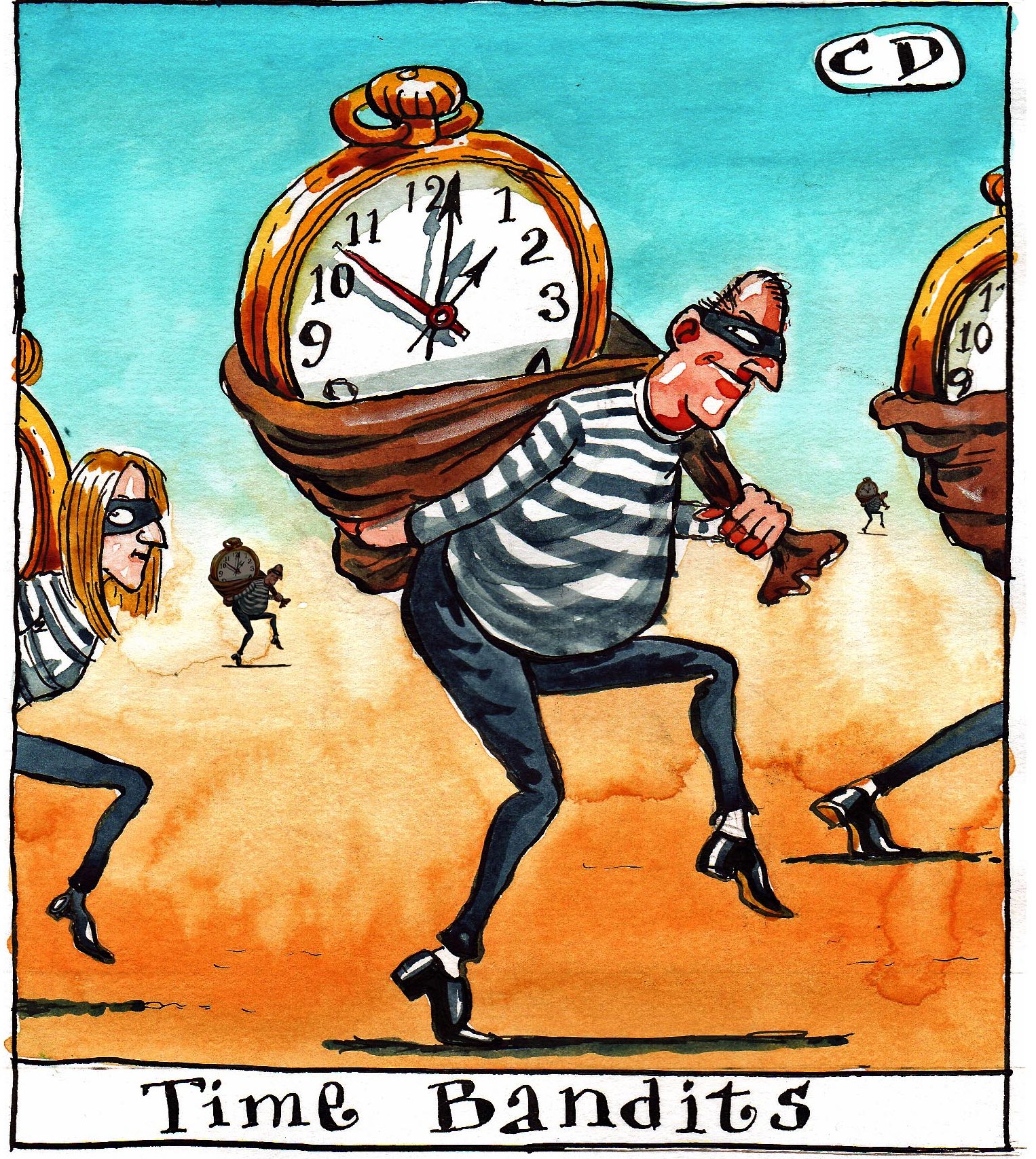It is both simple and ruthless. Audi workers at a Belgium factory are in a dispute with their bosses and rather than downing tools have stolen 200 car keys. They have vowed that no car will leave the factory until management has cleared up rumours about shutting the factory.
The bosses say the workers have stolen something more valuable than the keys to some shiny Q8 e-tron SUVs — they have stolen time.
Bild, the German newspaper, this week reported that almost 10 per cent of the carmaker’s assembly line workers were absent from work at any one time, on average. So-called “working time fraud” is said to be the most common reason for dismissals at Volkswagen, Audi’s parent company, with 800 cases of disciplinary action being taken last year.
It’s not just in car factories. There is a pervasive fear among Britain’s managers that those working from home are only spending half their contracted hours toiling away for their employer, using the other half to secretly earn extra income.
Some of this fear is grounded in reality. Several local councils, including Wakefield, Enfield, and Kensington & Chelsea, claim to have caught staff members in this form of deception. And plenty of UK workers have admitted to spending time on some side-hustle while technically at work.
This is — everyone seems to agree — a form of fraud. Stealing time is just as bad as stealing assets. “Time is money” has become so axiomatic that we measure productivity — both personal and on a national level — as output divided by hours worked.
Much of the hand-wringing over Britain’s productivity crisis comes from an assumption that even if we’re not moonlighting on another job, we’re almost certainly wasting time on Wordle or Instagram on our bosses’ dime.

But should we earn salaries based on time spent at our desks? That is how most workers in the knowledge economy get paid, following the model pioneered by American law firms in the 1960s: the billable hour.
Barristers, accountants, consultants and public relations executives frequently charge clients either by the hour — or in the case of some lawyers — in six minute increments. Considering partners at top American law firms are now charging in excess of £1,000 an hour, and famously they are allowed to bill for toilet breaks, you have to hope the one you have employed has an efficient bladder.
Though the old-fashioned stopwatch is used by some lawyers and accountants, increasingly companies now use sophisticated time-tracking software such as Harvest, Toggl Track or SD Worx. Harvest, for instance, syncs employees’ calendars and video-conferencing and assigns those activities to a client. Every Zoom call, every catch-up meeting, every email sent … kerching. It all goes into a billable hour and Harvest will turn it into an invoice.
It’s very intelligent but it cements the idea that time spent is work done. It rewards input, not output.
Quite a few bosses are becoming increasingly frustrated at this model. Darryl Sparey runs a communication agency, Hard Numbers, with the catchline “We don’t sell time, we sell results”. He argues that in the age of AI, “if you have a causal relationship between time spent doing stuff and client work, you are polar bears on melting ice caps.” All those hours spent researching some topic on the internet, and which you used to invoice a client for, can now be done in a matter of seconds.
He says he charges clients based on work actually done on their behalf — again using software to track telephone calls and emails — rather than time spent doing it.
I admire his ambition to break the billable hour model, but I’m not sure it’s that radical a solution. For starters, lots of consultancies now invoice by monthly retainer, rather than an hourly rate. More importantly, it still rewards busyness.
This week, one of my favourite writers, Oliver Burkeman, published his latest work, Meditations for Mortals. It follows his hugely successful Four Thousand Weeks, which pointed out that most of us have just 4,000 weeks on this planet and we will never achieve what we want to, regardless of how many to-do lists we write.
• Meditations for Mortals by Oliver Burkeman review — Zen and the art of losing control
Meditations is full of wise advice on not getting overburdened by work. It is particularly interesting on the now common idea that most knowledge workers can truly focus for only three, or at most four, hours a day. This is a bit of advice that productivity gurus — ever since the Victorian era — trot out in order to help us to achieve more in a day.
Anthony Trollope is an early example of a civil servant with a side-hustle. The author smugly claimed he wrote 250 words every 15 minutes during the three-hour stint he put in each morning before heading off to his job at the post office. “Three hours a day,” Trollope observed, “will produce as much as a man ought to write.” Mind you, he did manage to churn out 47 novels.
Modern productivity advice centres on the idea that if we ringfence three hours for hard, creative “flow” work, think what else we can do with the remaining time — emails, Zoom meetings, catch-ups, the gym?
For Burkeman, however, the three-hour rule is useful because it forces you to abandon the delusion that if you just managed to squeeze in a couple more hours of focused work, you’d finally reach the commanding position of mastering it all. “The truly valuable skill is the one the three-to-four-hour rule helps to instil: not the capacity to push yourself hard, but the capacity to stop and recuperate, despite the discomfort of knowing that the work remains unfinished.”
With more and more employees winning the right to work from home or remotely, we need to free ourselves from the idea that every keystroke — or every minute spent staring into a video call — is work. It’s input, not output.
